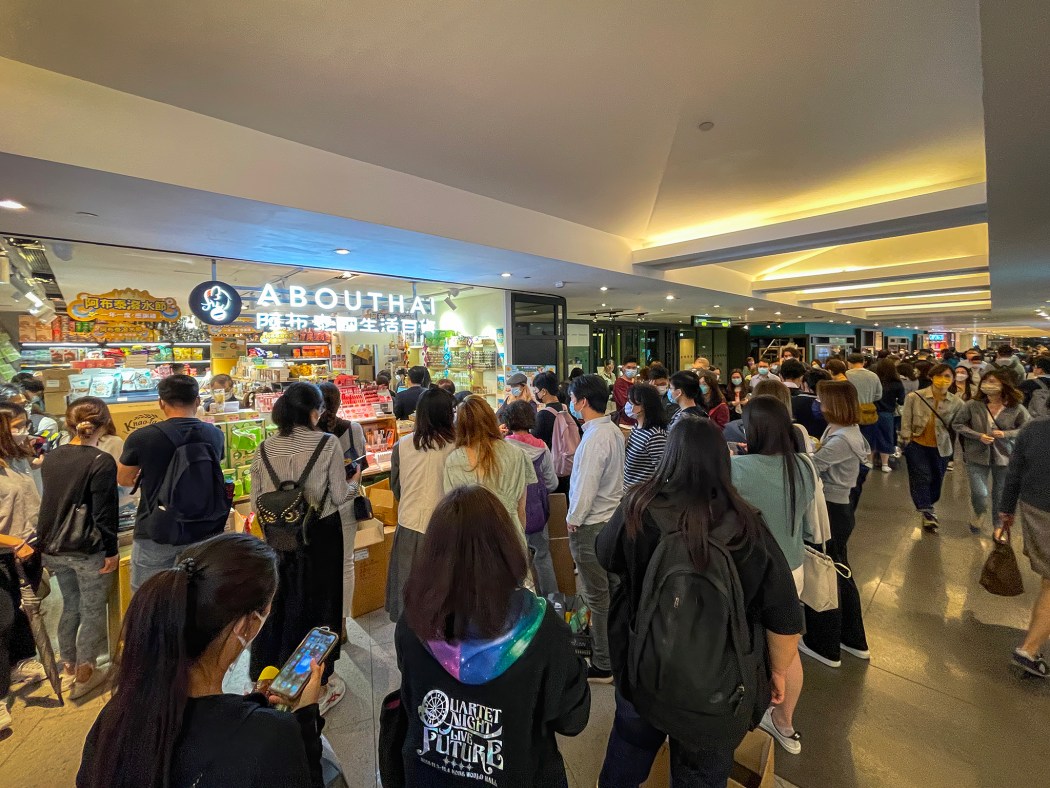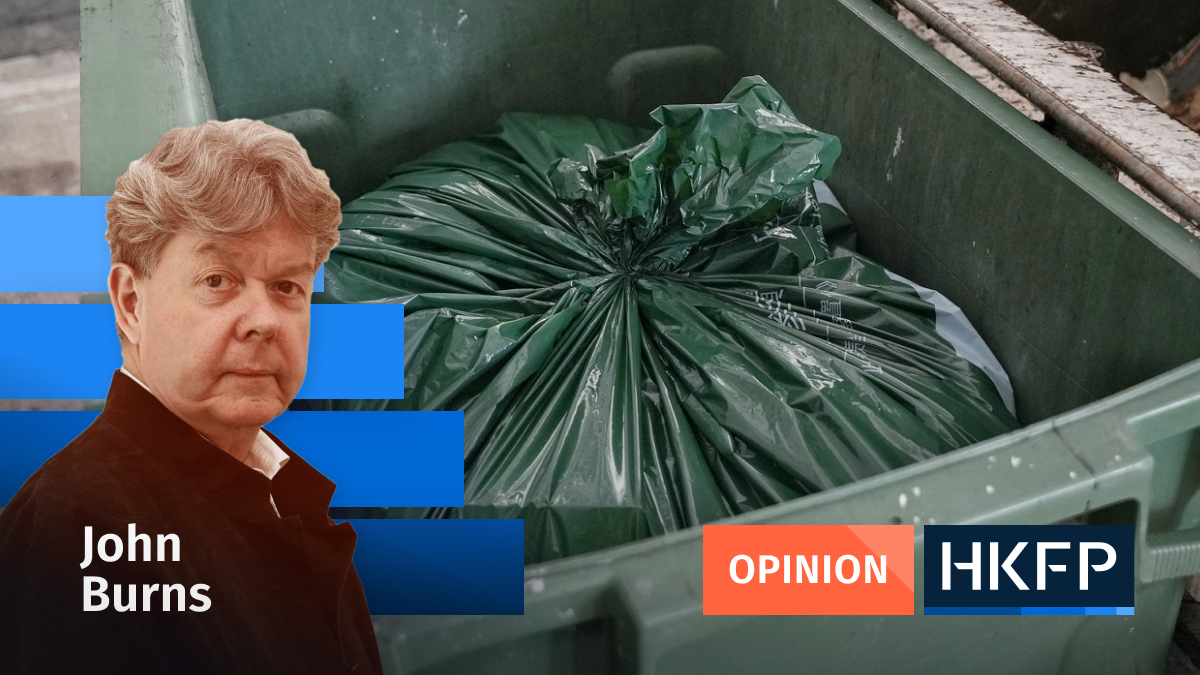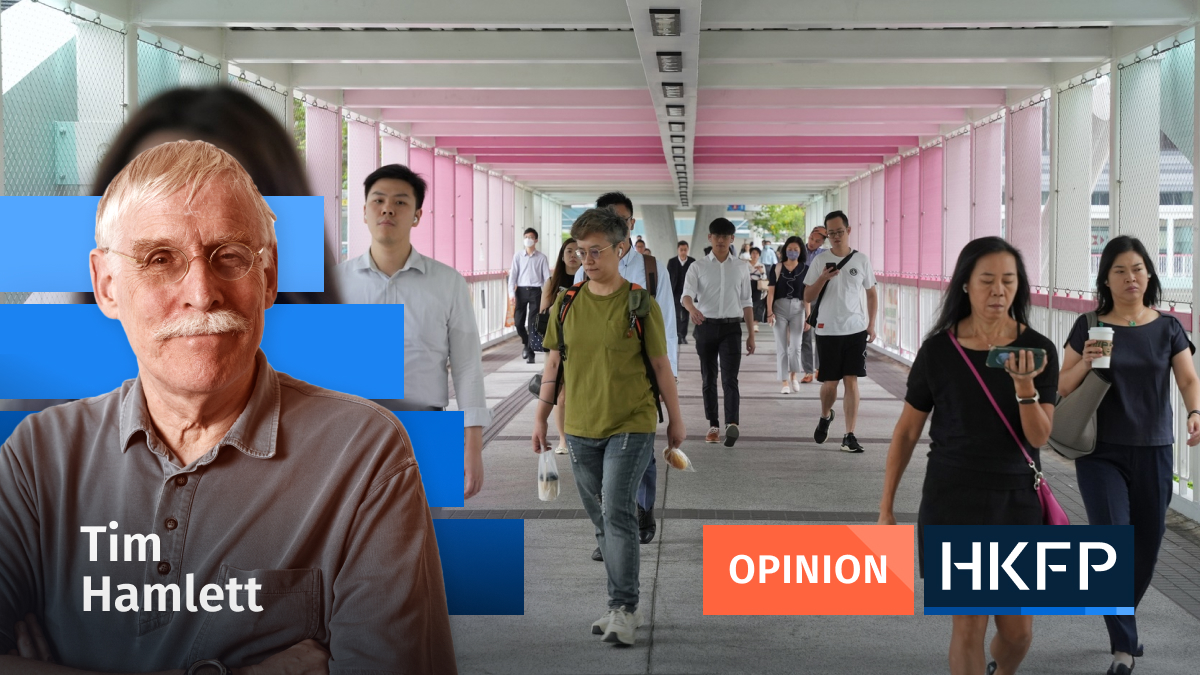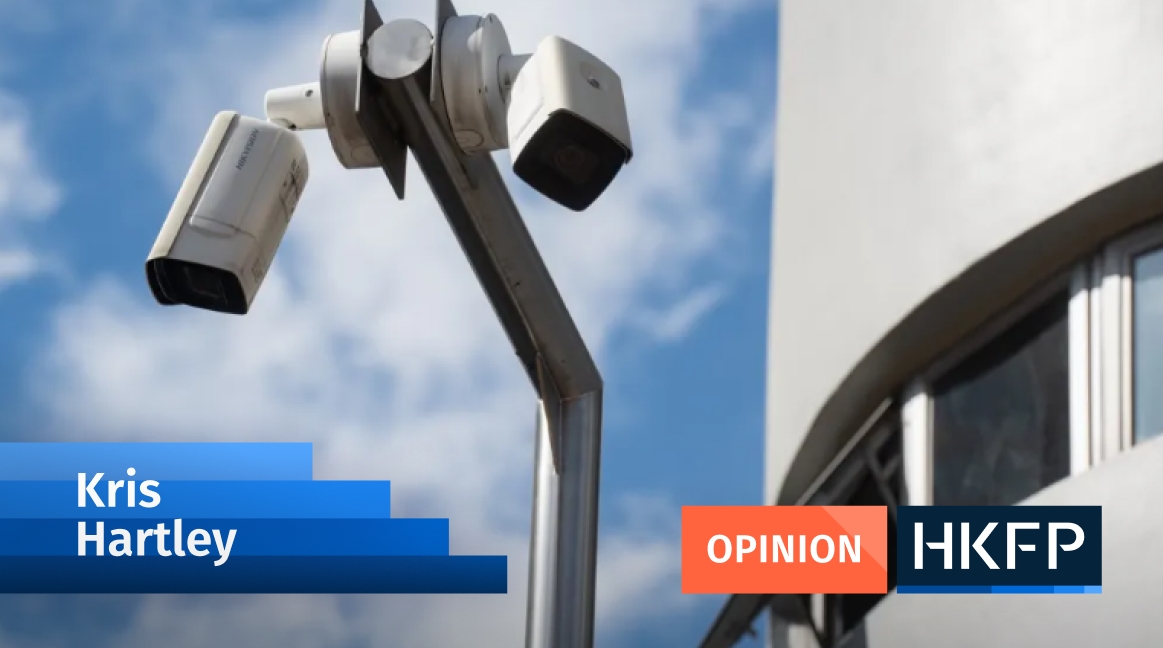As the hammer blows rain down on the freedom to conduct business in Hong Kong, the people wielding the hammer busy themselves with assurances that there is nothing to worry about.
To do so involves some exquisite contortions, a choice example was offered up by Carrie Lam, the Chief Executive in Name Only (CENO) who went into battle with logic to assert that the freezing of tycoon Jimmy Lai’s assets on grounds of national security would give business a boost.

She said, “the move would not undermine Hong Kong’s status, but rather reinforce it, as no one can make use of the city’s financial system to carry out political missions or acts that endanger national security.”
In the CENO’s exquisite double speak it is asserted that a law giving widespread and unspecified powers to freeze assets and allow the police to invade premises without a warrant, will lead to rejoicing among other business people who will believe that a more secure environment has been secured.
If the principle of rule of law has any meaning, it surely is that its application is conducted with equality and without prejudice. It is precisely because companies have long feared that this principle does not operate on the Mainland that they preferred to conduct business in Hong Kong where the rule of law used to be sacrosanct.
The apologists for the new order seem to believe that selective application of the law is justified as long as it is applied to people and companies who are identified as being dissidents. This is the equivalent of saying that a building only needs partial foundations because it will remain upright, possibly a bit shaky, but strong enough to withstand most pressure.
The rule of law is much like a building in as much as it can survive fractures but the fractures have a habit of multiplying at which point the foundations crumble. Anyone who seriously believes that freezing Jimmy Lai’s assets is a one off event will also be expecting the Pope to declare that he is a closet atheist.

The reality is sufficiently apparent to obviate the need to speculate over whether this process of undermining the foundations of commerce by selective application of law is already well underway.
A chain of stores owned by a dissident businessman suddenly found itself engulfed by law enforcers allegedly searching for mislabelled goods and names of customers were taken, presumably to discourage patronage. Another store daring to display symbols of the democracy movement was evicted from shopping malls and investigated by the police.

These are relatively small scale examples but make it clear that the conduct of business in the New Improved Hong Kong is now very much the subject of politics.
Anyone doubting this assertion should address their concerns to HSBC which, like other major companies, was forced to publicly endorse the National Security Law. Companies no longer have the option of being politically neutral, their active alignment with whatever the state proposes is now a requirement.
And then there is the more recent case of the US-based State Street, which is both the sole manager of the Tracker Fund of Hong Kong and, via an associate company, a fund trustee. Its role in these matters is now under investigation following a very short lived decision by its American parent to review investments in Hong Kong companies which might breach US sanctions on companies and individuals named by Washington.

State Street is caught between its responsibilities under US law and a newly politicised Hong Kong Monetary Authority which is considering ending State Street’s role as fund manager for the Tracker Fund. Even though the company quickly backtracked on its decision it is now a marked entity that – at best – will cling onto its current business and is highly unlikely to gain any other new business from the government.
Unsurprisingly, these developments are fuelling an exodus from Hong Kong of overseas business people. A recent survey from the American Chamber of Commerce said that over 40 per cent of those questioned were either preparing to leave or contemplating leaving. Even if only half this number carry through on these intentions, this would be an unprecedented blow.
Meanwhile Hong Kong is experiencing a sharp downturn in its role as an international arbitration business centre. This is because questions over the rule of law have convinced companies that they would be served better by moving their business over to Singapore.
The apologists might admit that there is some loss of confidence but insist that business as usual remains the order of the day. Every departure is treated as an exception, every movement of assets out of Hong Kong is declared to be temporary and so on.
The reality is that the SAR will not cease to be an international business centre overnight but the seeds of its destruction are being sown with relentless determination by those, like the CENO, who insist that Hong Kong is immune to reality.
Support HKFP | Policies & Ethics | Error/typo? | Contact Us | Newsletter | Transparency & Annual Report | Apps
| HKFP is an impartial platform & does not necessarily share the views of opinion writers or advertisers. HKFP presents a diversity of views & regularly invites figures across the political spectrum to write for us. Press freedom is guaranteed under the Basic Law, security law, Bill of Rights and Chinese constitution. Opinion pieces aim to point out errors or defects in the government, law or policies, or aim to suggest ideas or alterations via legal means without an intention of hatred, discontent or hostility against the authorities or other communities. |
Help safeguard press freedom & keep HKFP free for all readers by supporting our team

More HKFP OPINION:
HKFP has an impartial stance, transparent funding, and balanced coverage guided by an Ethics Code and Corrections Policy.
Support press freedom & help us surpass 1,000 monthly Patrons: 100% independent, governed by an ethics code & not-for-profit.










